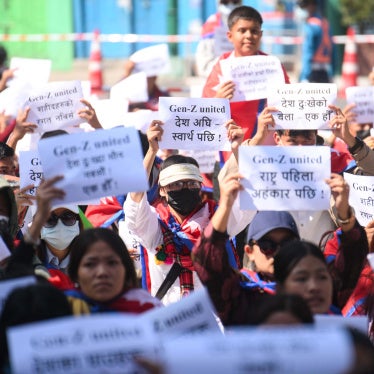The US administration has in the past two years seemed determined to undermine the International Criminal Court, one of the world's newest but most important instruments of international justice. Those efforts come to a head this week as Washington seeks to renew a UN Security Council resolution, first approved in 2002, that exempts US soldiers - among other troops - from international prosecution. The exemption applies to military and civilian personnel involved in UN and Security Council-authorised operations and covers nations not among the 94 countries to have ratified the treaty establishing the ICC. On Tuesday, we may learn whether the US has taken note of international concerns, following Washington's promise to set out a "final plan" on its proposed resolution.
The ICC, formally created in 2002, is still relatively little known. Its investigations are just gaining momentum, with possible prosecutions for atrocities in, for example, the war in the Democratic Republic of Congo. In coming years, the court could play a crucial role worldwide, with its unique jurisdiction to prosecute tyrants and genocidal killers - an almost unthinkable prospect a decade ago.
Kofi Annan, the UN secretary-general, last week publicly registered dismay at US moves to weaken the court, warning that "blanket exemption is wrong" and of "dubious judicial value." Many governments are ready to defend the ICC by abstaining on the US draft resolution - perhaps not least, as Mr Annan suggested, because of recent shocking evidence of US abuse of detainees at Abu Ghraib prison in Iraq and other military facilities.
The previous US-sponsored resolution expires on June 30. The US draft resolution will not pass if there are seven or more abstentions in the proposed Security Council vote this week. That prospect is beginning to look likely, after indications that Romania, despite intense US lobbying, will abstain. Other countries - including China - have also indicated they will resist US pressure. Given the growing opposition, the US resolution could be allowed to die quietly to avoid an embarrassing showdown. That should be the "final plan".
Of the countries to have ratified the ICC treaty, only one Security Council member has bucked the trend: the UK. Britain claims still to support the court, as it did when the ICC treaty was agreed in Rome in 1998. At the time, London played a positive role in achieving agreement. Yet, the UK government has since repeatedly indicated it will support the US on the exemption issue.
The danger of ICC prosecutions of UN-endorsed peacekeepers should be purely theoretical. The ICC is a court of last resort, investigating only where the government concerned is unable or unwilling to press charges. One would hope that no democratic government would whitewash serious crimes by its own citizens. In 2002, Washington threatened to veto UN peacekeeping operations unless the immunity resolution was approved. After a second extension of the one-year immunity deal last year, international opposition has grown over Washington's arm-twisting tactics. The ICC's supporters have understood what the US administration seems so reluctant to grasp: when America places itself above the law, it sends a dangerous signal.
The UK claims it only wants to protect peacekeeping operations from fears of a US withdrawal. Yet despite the bluster, Washington would be reluctant to veto peacekeeping missions in places such as Sudan or Liberia. In reality, Britain's narrow framing of the issue is misleading. It is no secret that US demands for exemption are merely a beginning, and that US officials would like to see the ICC weaken and so die.
In past years, Tony Blair, the prime minister, seemed to appreciate the importance of accountability and justice for greater international security. Sadly, he now seems willing to turn his back on international law - an impression reinforced by his unwillingness to criticise US abuses of detainees in military facilities.
While Washington should accept that it cannot always get its own way, London, in turn, should actively encourage the US administration to back away from ultimately destructive ideas. If justice is framed to become more palatable to powerful governments, that means no justice at all. In theory, the British government understands that self-evident truth. The practice seems, on present evidence, to be different.
Steve Crawshaw is London director of Human Rights Watch; Richard Dicker is director of HRW's international justice programme






